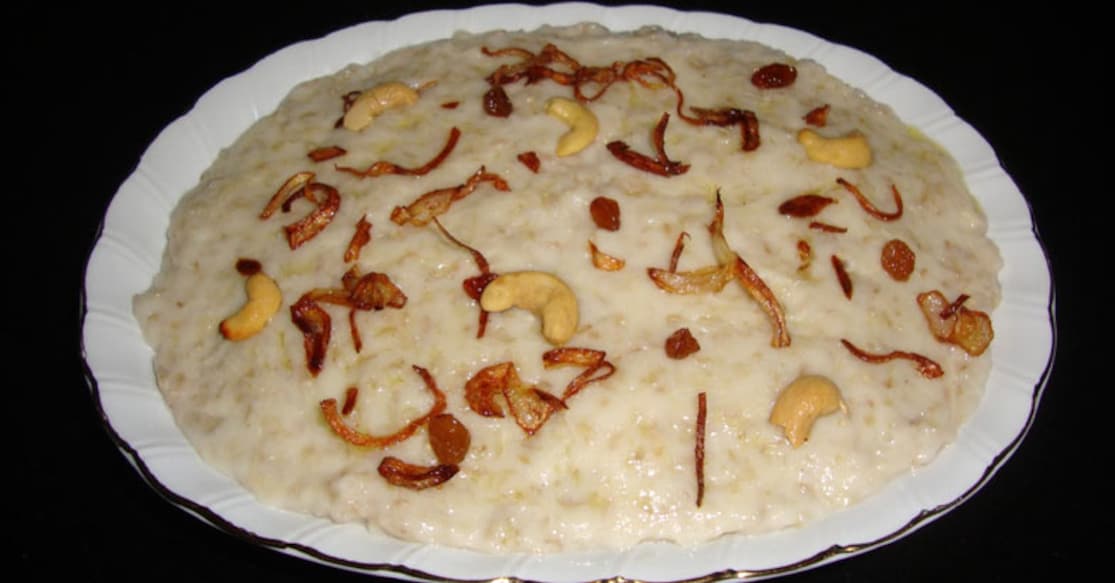Qatar calls out to Surendran's Harees

Mail This Article
Doha: Surendran’s culinary fortune crosses the seas in the name of a dish that his own household members or hometown folks have never tasted. The recipe of the luxury Arab dish, also a Ramadan specialty, called Harees or [Aleesa](http://food.manoramaonline.com/food/in-season/Aleesa-ramadan-dish-ramzan-alsa-harees-iftar-food-recipes-kerala.html/ “Aleesa Recipe”) seems safer in the hands of Surendran than the Arabs'. As the Ramadan month is on full swing, a phone call from Doha promptly seeks Surendran of Suja Bhavan in Anchal Chembakaramanalloor in Kollam. As the visa and ticket follow suit, Surendran will get ready to fly to Doha, leaving his own bakery in the able hands of wife Ratnamma. His return will be after the initial feast. Even though he left his Doha job and returned home in 1998, Surendran has been a ‘visiting cook’ in Doha for the past seven years. During Ramadan time, the home of a Sheikh in Mamura becomes the venue for showcasing Surendran’s culinary skills. The delicacy, Harees, made out of wheat and meat ground into a pulp is a Ramadan specialty in affluent Arabs’ homes. Harees has a special importance at Arab wedding feasts too. It is a common practice among rich Qataris to not only make Harees, but also distribute it among relatives and acquaintances. Harees requires hours of effort and care to prepare; it is prepared daily for three hundred people under Surendran’s supervision. Work for Harees, which is prepared using 50 kilogram wheat, 40 kilogram mutton, water and salt begins the previous day. Work which begins at 10 pm on the previous night will finish by 4 pm the next day. Wheat will be soaked in water and made ready. Meat will be cleaned, washed and cooked. The two will be mixed together and cooked till 1 am. The mix which is later kept enclosed will be again cooked starting from morning 9 o’ clock. The precision followed in the method of cooking is as important as the ingredients used for cooking. Surendran says that even the vagaries of the fire in the hearth will affect the taste. One should keep constant vigil and keep on stirring to avoid the meat or wheat sticking to the bottom of the pan. Cooking will be done by 12 noon and the whole thing would be kept aside for cooling. Later by 3 pm, the hearth will be broken and Harees taken out. It is equally important to break the Harees and make it into a paste form. The breaking is done by five or six workers in concert. Mechanical aids are employed to achieve it in the Sheikh’s house. A special machine has been imported from Paris for this purpose. Harees will be passed over to plates and readied for distribution before the time of fast break. Surendran had worked for nearly twenty years at the home of the elder sister of the Sheikh, in Madina Khaleefa. It was there that he learned about the flavour of Harees from an Oman native. Later, he left his job and set out for home. But ten years later, he was summoned at the Sheikh’s house, to make Ramadan as delicious an event as possible. Sumptuous meals including Harees are distributed everyday starting from the first day of the Ramadan month till the day of the big feast from the Sheikh’s house. Apart from Harees, Arab bread, mutton curry and white rice are served. A fruit packet is supplied along with it. Besides delivering these to his relatives and acquaintances in vehicles, distribution is also made to around 200 outsiders daily. The regular customers here include Malayalis. Food buyers queue up here from 3 pm in the evening. This is followed by the distribution of food before breaking the fast. Food is given for the individual and their families. Fruits and dates from the Sheikh’s own orchard are distributed. Around 25 workers of different nationalities including Malayalis are engaged in preparing and distributing food for these many people. Surendran who earn plaudits from the Arabs for his Harees has still not been able to prepare the same for his own family members. He cites the unavailability of machines or other facilities for grinding meat, etc as the reason that hinders him from making Harees in his hometown.

